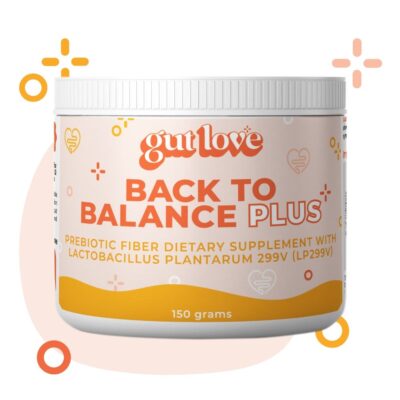Whether you are newly diagnosed or have had a long history of IBD, it is almost certain that you have asked the question, “Why does IBD make me so tired?!” to your friends, family, and health care team. In today’s blog post we discuss the top reasons for fatigue in IBD and actionable items you can implement into your routine and care plan to see improvements.
Why Does IBD Make Me So Tired
Sleep
Getting adequate sleep is often a very difficult task in IBD. It’s tough to fall asleep and stay asleep when symptoms are present and the worry and anxiety felt from not sleeping well doesn’t help things.
We know there are many studies to support the importance of adequate and restful sleep to support one’s overall health. More specifically, when looking at the evidence around sleep and immune system disorders (such as IBD) a meta-analysis of experimental sleep deprivation studies, showed that sleep disturbances were associated with increases in CRP and IL-6, which are markers of inflammation (4).
In fact, the lack of a restful sleep can be difficult for someone to address as there can be multiple factors like steroid use, stress, and screen time that affect our ability to fall asleep and stay asleep. So if you feel stuck on where to start with improving your sleep, consider talking to your doctor on what the best steps would be for you.
In addition, there is good evidence for using supplements to help with insomnia. Particularly, melatonin and magnesium, which together promote better sleep by falling asleep faster and staying asleep longer (3). Remember, both quality and quantity of sleep is needed for your body to rest and recover optimally.
Nutrient Deficiencies
Nutrient deficiencies create downstream effects and can affect multiple body systems which present symptoms, such as fatigue.
Staying current with blood work can also be helpful in determining if there are any nutrient deficiencies present. Nutrient deficiencies are often caused by the disease process depleting the body’s resources and can exacerbate symptoms as well as contribute to overall fatigue.
The top nutrients of concern that can contribute to fatigue if levels are low include:
- Iron
- Vitamin B12
- Folate
- Vitamin D
Check out our recent article to learn more about nutrient deficiencies and ways you can stay on top of them.
Not Eating Enough
Food is the body’s energy source and when energy needs are not met all systems of the body suffer the consequences. Your body is constantly having to use energy and even more so in a chronic inflammatory disease state, which typically requires more calories coming in than the average person.
The idea of more calories for those with IBD is often met with anxiety and fear because the thought of more food being eaten opens the possibility of more symptoms being experienced. This reality can be softened by partnering with a nutrition professional. For instance, a Registered Dietitian that specializes in IBD.
Additionally, we can assess your current intake, nutrient status, and provide personalized recommendations for addressing the nutrient gaps in your diet. By forming an alliance with a nutrition professional that specializes in IBD, you can have peace of mind about your nutrition choices and how they interact with your disease.
Dehydration
Hydration status can easily be overlooked, however it is an important factor to consider. Fluid intake may already be low in those with IBD and multiple trips to the bathroom during the day can contribute to dehydration.
Dehydration can cause symptoms of fatigue because nearly all body functions involve some level of fluid balance, so even small changes in fluid balance can affect how the body is able to perform. If fluid is not adequately replaced, blood volume increases which then puts more strain on the heart and makes it more difficult to supply the skin and muscles with oxygen and nutrients.
Signs and symptoms of dehydration include:
- Headaches
- Dizziness or light headedness
- Thirst
- Decreased urine output
As a general rule of thumb, aim for at least half your body weight in ounces of fluid per day to adequately hydrate your body. The National Academy of Medicine recommends:
- About 13 cups (3 L) of water per day for men
- About 9 cups (2 L) of water per day for women
Chat with a Registered Dietitian to assess your needs and to determine if supplementing with electrolytes is appropriate for you!
Inflammation
Persistent low-grade inflammation is associated with high costs on the body, one such being fatigue. A recent study showed:
- Persistent fatigue has been associated with low-grade inflammation in several models of fatigue, including cancer-related fatigue and chronic fatigue syndrome.
- Inflammation increases the need of immune cells for rapid generation of cellular energy.
- Chronic low-grade and severe inflammation has been shown to affect sleep quality and circadian rhythms, contributing to fatigue.
IBD therapy and control of inflammation is consistently associated with improvement in fatigue and arguably the most critical factor related to fatigue in IBD. In fact, controlling inflammation is possible in a variety of ways. But is best left up to you and your healthcare team.
Staying up to date on lab work like Vitamin D, CRP, and fecal calprotectin are beneficial strategies to ensure inflammation is being controlled. Inflammatory markers should routinely be checked and monitored for best outcomes.
Key takeaways for fatigue in IBD
As you can see, there isn’t a one size fits all approach to improving the fatigue you feel. Assessing quality of sleep, staying informed by using appropriate labs to assess inflammation, staying hydrated, addressing nutrient deficiencies, and consuming a diet rich in variety and anti-inflammatory foods are all beneficial ways to fight fatigue.
Actionable items to help fight fatigue:
- Assess quality and quantity of sleep – can you cut off screen time earlier to help increase sleep quality?
- Speak with a dietitian about your food and liquid intake – are you eating enough in the day to support your health? Do you need additional electrolytes to hydrate?
- Stay current on bloodwork
- Consider supplementation with assistance from your doctor/dietitian if nutrient deficiencies are present or not improving
Do you need help navigating where to start, staying on track, or where to pivot? Schedule a no-pressure call to discuss ways we can support you.
References:
- Borren, N.Z., van der Woude, C.J. & Ananthakrishnan, A.N. Fatigue in IBD: epidemiology, pathophysiology and management. Nat Rev Gastroenterol Hepatol 16, 247–259 (2019). https://doi.org/10.1038/s41575-018-0091-9
- Lacourt, T. E., Vichaya, E. G., Chiu, G. S., Dantzer, R., & Heijnen, C. J. (2018). The High Costs of Low-Grade Inflammation: Persistent Fatigue as a Consequence of Reduced Cellular-Energy Availability and Non-adaptive Energy Expenditure. Frontiers in behavioral neuroscience, 12, 78. https://doi.org/10.3389/fnbeh.2018.00078
- Minich, D. M., Henning, M., Darley, C., Fahoum, M., Schuler, C. B., & Frame, J. (2022). Is Melatonin the “Next Vitamin D”?: A Review of Emerging Science, Clinical Uses, Safety, and Dietary Supplements. Nutrients, 14(19), 3934. https://doi.org/10.3390/nu14193934
- Nocerino, A., Nguyen, A., Agrawal, M., Mone, A., Lakhani, K., & Swaminath, A. (2020). Fatigue in Inflammatory Bowel Diseases: Etiologies and Management. Advances in therapy, 37(1), 97–112. https://doi.org/10.1007/s12325-019-01151-w







Danielle, this was so helpful and timely, thank you!
I’ve heard that some studies show supplementing melatonin inhibits the body from making its own over time. Any thoughts or insights on that?
Marilyn